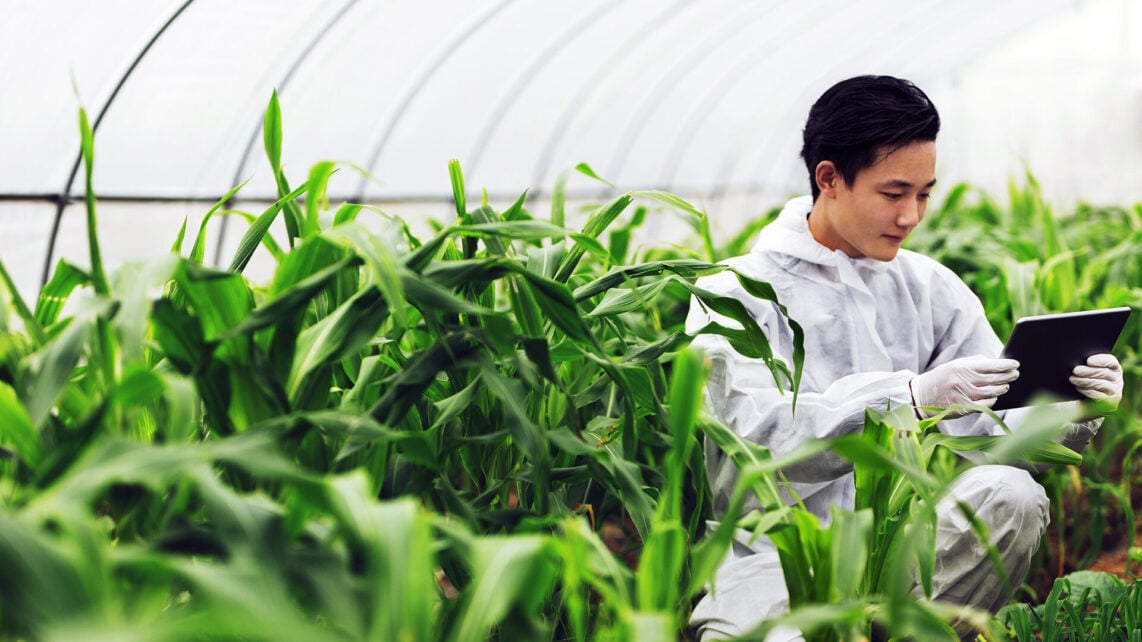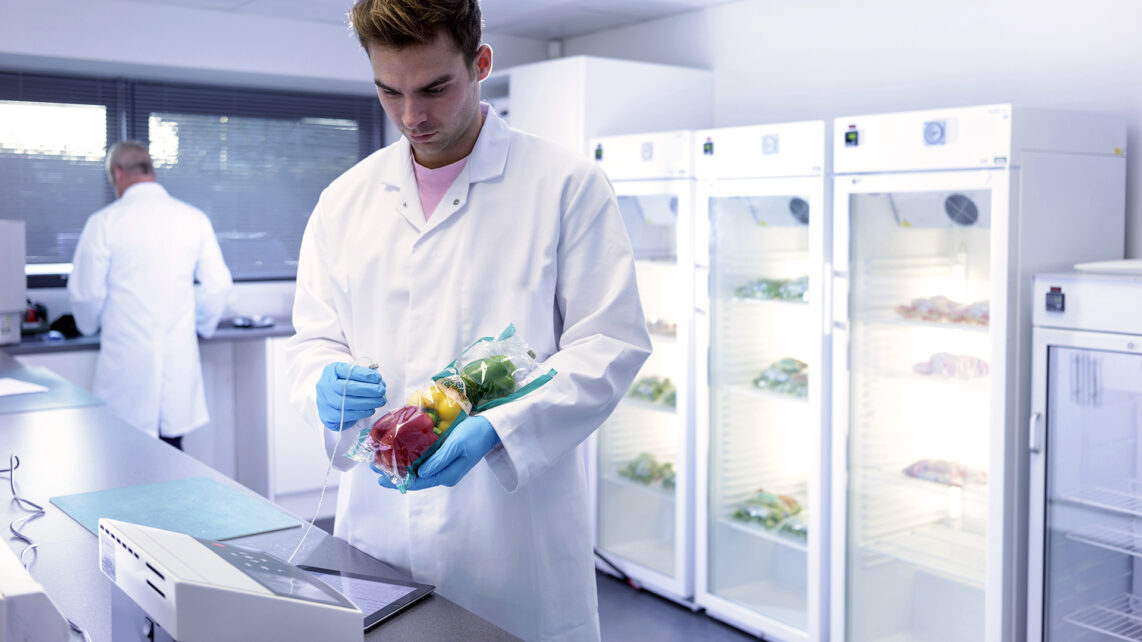Trust in Every Byte: Innovating to Strengthen Consumer Confidence in Global Food Supply Chain
Consumers want to know the food they eat or drink is safe. They are trusting all players involved from sourcing raw ingredients to the packaged foods they purchase to do their due diligence before selling to consumers. Regulatory guidance continues to swiftly change to support a safe food supply chain to meet this very important consumer expectation. As the food & beverage industry continues to rapidly adapt to heightened consumer expectations regarding the safety and security of their food supply, we must note that this is not the only factor driving industry behavior. Technologies such as blockchain and cryptocurrency, along with more efficient processes and a more tightly woven supply chain, are contributing to building greater consumer trust in every bite along the global food supply chain. Food safety testing plays a crucial role in adapting to these heightened expectations, while safeguarding public health, minimizing economic losses, and ensuring a sustainable and safe food supply.
Decline of Consumer Trust in the Food Supply Chain
A recent study across 18 European countries reported less than half of those polled trusted food manufacturers in terms of competency and openness. In the US, a University of Minnesota poll showed that less than 25% of those surveyed strongly trust information about where their food is grown and how it is produced.
Rebuilding that trust becomes more challenging in light of the number of foodborne illnesses annually. According to the World Health Organization, almost 1 in 10 people in the world fall ill after eating contaminated food, resulting in 420,000 deaths worldwide every year.
Additionally, sustainability concerns, such as embracing regenerative agriculture and carbon offsetting, and food and beverage companies shifting towards more environmentally friendly food choices, drive consumer behavior and expectations. A recent survey found 42% of consumers stating they always or nearly always consider the environment and climate impacts in their food purchasing decisions.
Rebuilding Consumer Trust in the Food Industry
To address these concerns and rebuild consumer trust in the food industry, international regulations and guidelines have been and continue to be established, including ISO/IEC 17025, FSMA, GMP, HACCP, and 21 CFR Part 11.
The industry has renewed its pledges toward greater transparency as well. For example, Unilever “use(s) transparency to offer stakeholders clear insights into their supply chain processes, from sourcing to sustainability.”
Technologies like blockchain and cryptocurrency, are also rising to meet the challenge along every step of the food supply chain. Blockchain’s “decentralized structure distributes data across multiple nodes, reducing the risk of (cyber-attacks) and protecting sensitive supply chain information,” as well as ensuring more accurate tracking. Blockchain is often used for cryptocurrency, which can facilitate payments across borders with reduced fees and delays, particularly for small-scale farmers in developing regions.
Bringing Efficiencies into Global Food Supply Chain
Food safety laboratories, a critical part of the supply chain, are committed to support reinforcing trust, yet they can struggle to meet the cumbersome compliance requirements which can slow throughput. New tools are needed to make compliance easier and more transparent. Robust laboratory informatics solutions, one such tool that can be leveraged to increase better compliance, can contribute efficiencies and safeguards that allow for building of trust for food safety labs.
A LIMS to Speed Compliance and Sustain Quality Measures
The global food supply is increasingly exposed to a range of threats, both established and emerging. These include pathogenic microorganisms as well as contamination from naturally occurring substances and man-made environmental chemicals and pollutants. Collectively, these factors pose substantial challenges to the assurance of safe and sustainable food production worldwide.
New and improved analytical methods are enabling faster and more accurate testing for increased confidence and assurance of food safety. A Laboratory Information Management System (LIMS) can manage workflows and data associated with advances in areas including DNA-based and rapid testing methods.
Clinisys™ Food & Beverage Laboratory LIMS solution helps more effectively carry out vital testing to support the delivery of safe, high-quality food products for people in every corner of the world. The technology is designed to support automation of the lab’s most complex testing processes, with tools that can help optimize workflows, speed data acquisition, and better manage and report data.
Clinisys™ Laboratory Solution technology makes it straightforward for you to align your lab workflows and processes in support of quality control and continued compliance. Clinisys Food & Beverage Laboratory will help you keep up with rapidly changing international regulations and guidelines, including ISO/IEC 17025, FSMA, GMP, HACCP, and 21 CFR Part 11.
Inter-Laboratory Partnership
Labs must maintain end-to-end sample and data management security and traceability not just within their own walls, but also when subcontracting specific tests out to partner labs. Crossing operational boundaries can increase the risk of sample handling and tracking errors, resulting in concerns about shared data security and chain of custody disruptions that could impact data integrity.
Clinisys Food & Beverage Laboratory offers a Subcontract Data Import utility that facilitates safe inter-laboratory sample transfer, while retaining continuous chain of custody tracking.
The import of results from third-party labs, inclusive of their quality control samples and limits, is enabled. The tools support both sides of partnerships, ensuring complete confidence in security, whether subcontracting out or receiving outsourced food safety testing contracts.
.
The Nirvana of Transparency is Trust in Every Byte
“It is one enabler to get us to the nirvana of transparency, but it is people and their willingness to share information that will play a big part,” Ramesh Gopinath, VP of Strategic AI Partnerships at IBM once observed when referring to blockchain’s use in securing the global food supply.
Clinisys Food & Beverage Laboratory also plays a role in helping your lab achieve greater transparency, while upholding food safety standards for everyone.
From every digital byte of data to every safe bite of food, a robust LIMS helps to ensure traceability and transparency, building trust throughout the global food supply chain. Do you have the right LIMS in place to support a more sustainable and safe food supply?
Referenced sources
1. https://www.foodmanufacture.co.uk/Article/2024/05/22/less-than-half-of-consumers-trust-food-manufacturers/
2. https://foodinstitute.com/consumerinsights/poll-most-americans-have-trust-gap-over-food-source-information/
3. https://www.who.int/news-room/fact-sheets/detail/food-safety
4. https://www.fooddive.com/news/more-than-40-of-consumers-factor-in-sustainability-when-purchasing-food-s/648201/
5. https://propelapps.com/blog/mobile-supply-chain/supply-chain-trust/
6. https://fooddigital.com/food/blockchain-the-secret-sauce-for-a-secure-food-supply-chain
7. https://supply-chain-analytics.cioreview.com/cxoinsight/trust-in-every-bite-how-gsf-envisions-the-food-supply-chain-for-the-digital-era-nid-32114-cid-256.html
Related Content

Addressing Resource and Technology Challenges in Food Safety Laboratories
Increased regulatory requirements, together with demands for greater scale and speed of operations, create a challenging environment for food producers and the food testing industry who are tasked with guaranteeing the safe supply of food, from farm to fork.

Harnessing Data From Informatics Platforms To Boost Quality Management
Quality management is essential for food and beverage labs to deliver high-quality results and comply with the latest regulatory standards. Food safety testing is crucial to safeguarding public health, minimizing economic losses, and ensuring a sustainable and safe food supply.

How more testing labs than just food safety can reduce risk by adopting HACCP principles and risk-based thinking
Beyond food safety testing, laboratories of all types should consider using FDA HACCP approaches and risk-based thinking in daily operations to better mitigate risk and to comply with ISO/IEC 17025:2017.